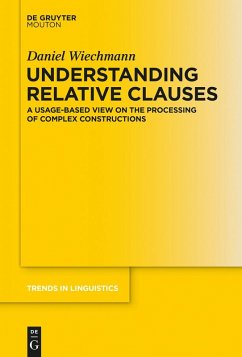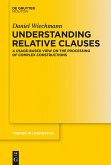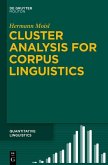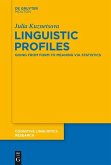The book offers a usage-based account of how humans comprehend complex linguistic structures. The author proposes a theory of constructional access, which treats syntactic patterns as complex and abstract signs. In this view, syntactic processing is subject to the very same dynamics as lexical processing and should yield the same type of frequency effects.
Dieser Download kann aus rechtlichen Gründen nur mit Rechnungsadresse in A, B, BG, CY, CZ, D, DK, EW, E, FIN, F, GR, HR, H, IRL, I, LT, L, LR, M, NL, PL, P, R, S, SLO, SK ausgeliefert werden.
Minna Kirjavainen in: Cagnitive Linguistics 2017; 28(1): 203-208









